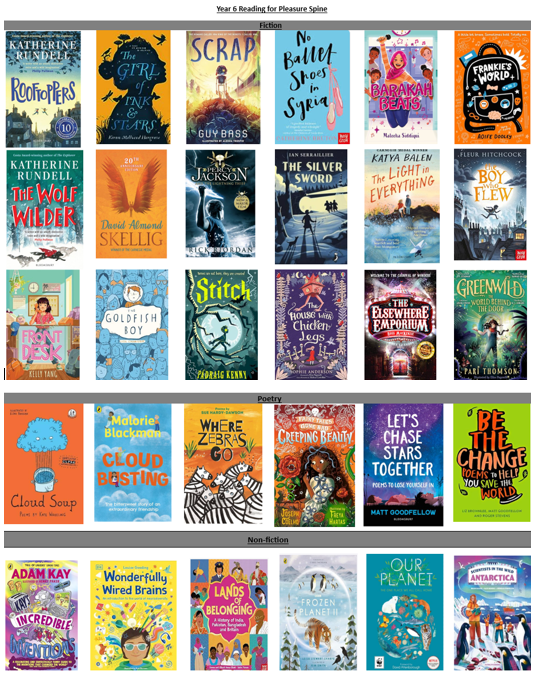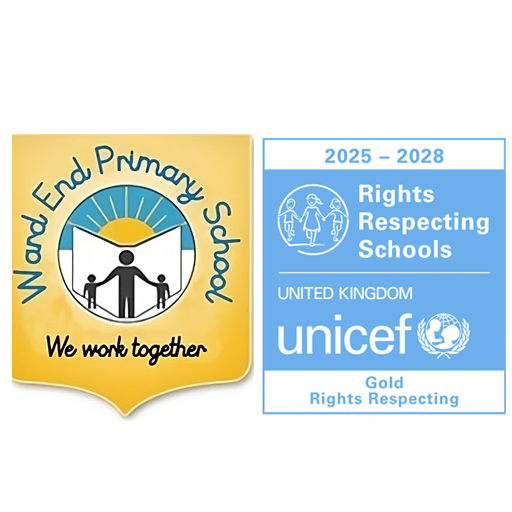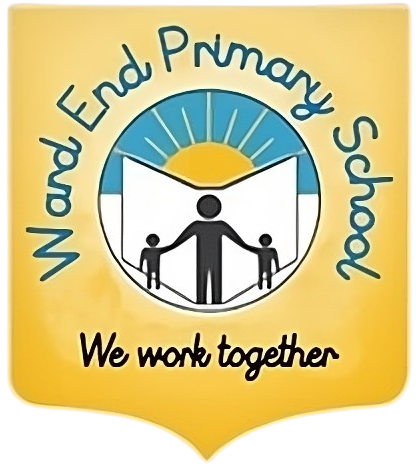Reading At Ward End Primary School
How we teach reading at Ward End Primary
It is our intent that every child at Ward End Primary will learn how to read fluently, to understand what they read with confidence and to discover a love of books.
Foundation Stage and Key Stage 1
Little Wandle Reading Model
Focus and structure of the sessions
Each of these sessions follows the same structure:
Pre-read: Revisit and review. Aim: increased automaticity of GPC and word reading. This part of the session is short and pacy. The teacher ensures all children practise: reading graphemes, reading words with increased fluency, reviewing tricky words.The teacher teaches vocabulary words to the children.
Review: Pacy review of any misconceptions. Aim: to address and errors or misconceptions. Teachers use Assessment for Learning from the reading session for a pacy review to address any errors with GPCs, specific words in the book or tricky words. Teachers use ‘Reading practice record sheet’ to keep track of children’s attendance and progress.
Explicit Reading Instruction in Key Stage 2
In Key Stage 2, we teach reading explicitly and deliberately to build confident and eager readers.
Our ambitious reading curriculum introduces our children to a wide range of high quality writing that includes fiction, non-fiction and poetry. Texts are carefully and intentionally selected to ensure that children encounter a wide range of rich and nourishing texts; ambitious and expressive language; a diverse range of authors and protagonists; and a broad selection of thought-provoking themes which encourage children to ponder deeply about themselves and the world around them. They progress in complexity and challenge as children move through the school.
Whole class reading lessons are used purposefully to explain, model and practise key reading approaches used by skilled readers. Our teaching seeks to use them as an opportunity to
– intentionally build vocabulary
– support the activation and acquisition of knowledge as an aid to understanding
– encourage rich and empathetic discussion
– develop fluency
– understand the craft of a writer
– build mental models that make sense of text
– but, most of all, to emphasise the enjoyment of reading.
Lessons make liberal use of reading aloud by teachers and pupils to support understanding and fluency by expert modelling of prosody and phrasing. We use the VIPERS model (in child-friendly language) to assist planning and assessment. VIPERS questions are used intentionally at the end of lessons to check for understanding.
Reading for children who have difficulty with phonics or fluency
To read fluently, children need to be able both to decode with automaticity and accuracy and to use prosody to make sense of what they read. Every Key Stage 2 reading lesson includes practice in prosody, for example through reading aloud, echo reading, performance reading or choral reading with the intention of deliberately building our children’s understanding of the rhythms of language and their comprehension of what they read. This aspect of fluency is further supported by the Talk for Writing approach to writing.
The Accelerated Reader programme helps make sure that children are reading books that are matched to their current level of fluency. Once they have been assessed, they are allocated a code which allows them to select books of an appropriate level themselves.
We recognise that some children may need still more help to read fluently at a level appropriate for their age. For children who struggle with fluency as a result of a deficit in phonics, we use diagnostic assessment materials from our SSP (Little Wandle) to pinpoint gaps in knowledge and address them using the Little Wandle rapid catch-up programme.
The Little Wandle materials are used to measure fluency in Years 2 and 3. Those with a fluency deficit are flagged up to class teacher for special monitoring during fluency practice in class (see above).
In Key Stage 2, interventions are supported in class by the use of phonics teaching techniques when introducing new vocabulary and in reading and spelling across the curriculum.
Reading for Pleasure at Ward End Primary School
We understand that encouraging children to read for pleasure is too important to leave to chance and requires more than reading instruction.
For children to enjoy reading, we need to develop children’s agency, their freedom to choose what, when, where and how to read as enshrined in the rights of a reader summarised by Daniel Pennac and Cressida Cowell. This links to our work as a UNICEF Rights Respecting School.
We know that we need to build our teachers’ knowledge literature, our teachers’ knowledge of our children’s reading practices and to take connected and deliberate actions to build a school community with reading at its heart. We therefore intend to provide:
– Inviting spaces where children can browse and read, including the library and book corners.
– Multiple books in book corners encourage children to read books alongside each other and have rich informal conversations about book.
– Access to a diverse and inviting range of books representative of the community and offering access to the wider world.
– Daily story time: teachers read aloud every day.
– Assemblies, teachers’ doors, teachers’ emails and teachers’ bookshelves make recommendations and present teachers as reading role models.
– Regular surveys monitor attitudes towards reading and improve knowledge of children as readers.
– Reading journals and weekly library lessons provide insights into children’s reading practices.
– Christmas book gifts ensures that children own their own books.
– Reading linked to themes is part of every assembly.
– Independent reading for pleasure time is available before school.
– Reading displays in communal areas.
– Meetings for parents stress that reading for pleasure supports attainment (this is a community of parents who value education).
– In Early Years and Key Stage 1 parents are invited to a Little Wandle Phonics workshop to support learning at home.
Our Reading for Progress SPINE
Little Wandle Book Progression
KS2 Reading for Progress Spine
Our Reading For Pleasure Spine

Nursery Reading for Pleasure Spine
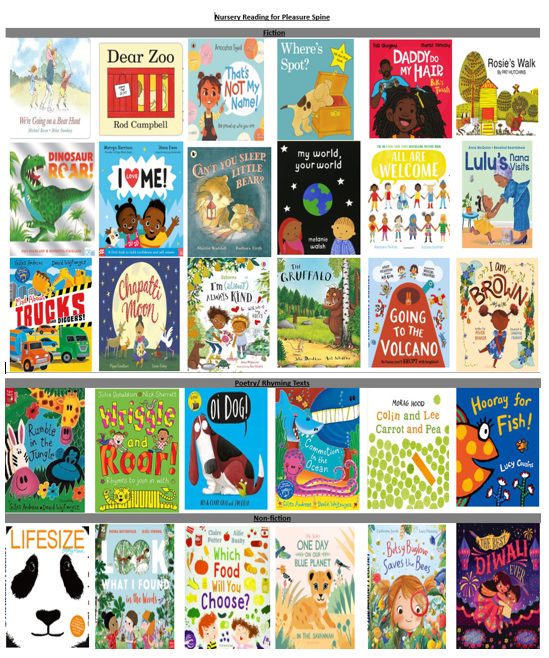
Reception Reading for Pleasure Spine
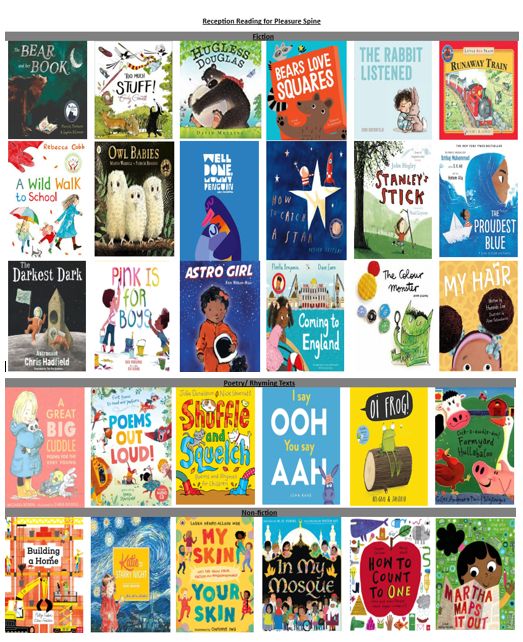
Year 1 Reading for Pleasure Spine
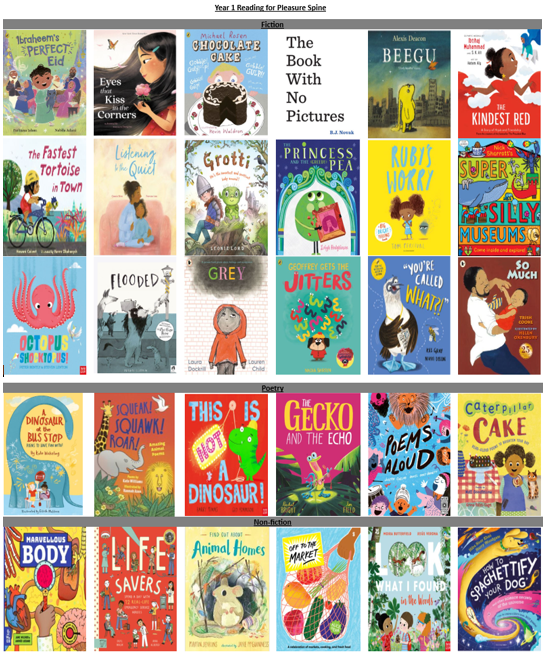
Year 2 Reading for Pleasure Spine
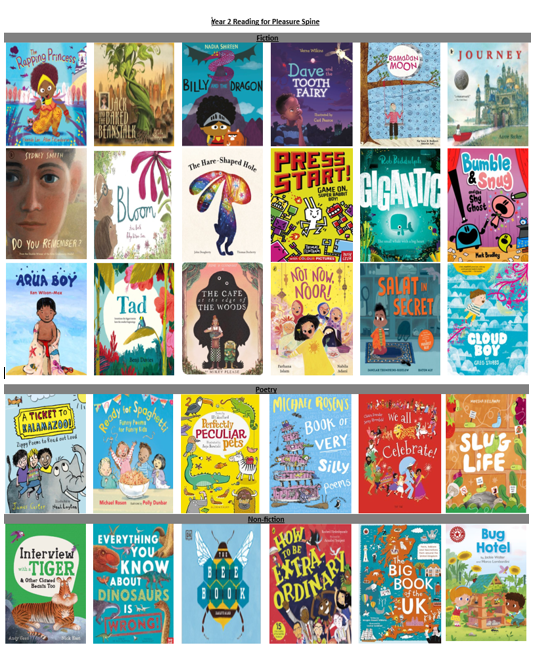
Year 3 Reading for Pleasure Spine
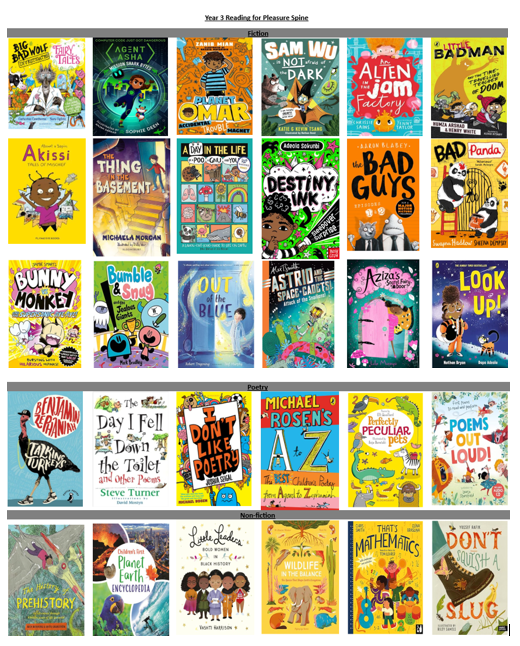
Year 4 Reading for Pleasure Spine
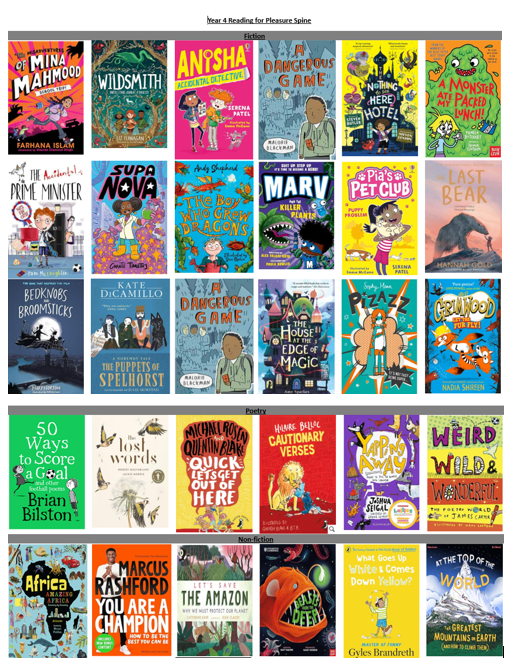
Year 5 Reading for Pleasure Spine
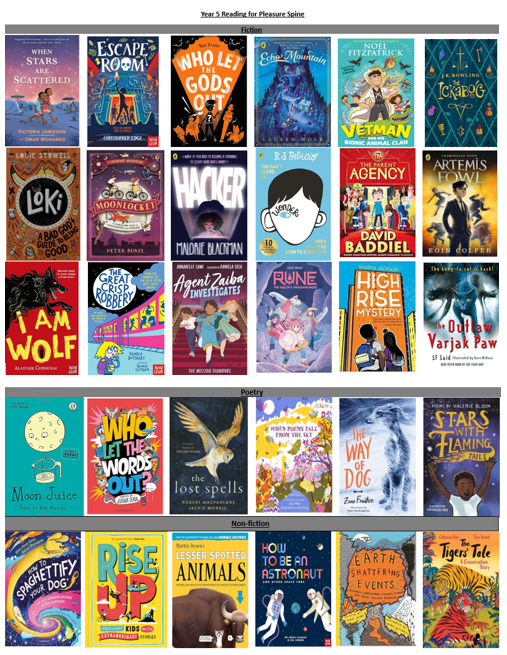
Year 6 Reading for Pleasure Spine
